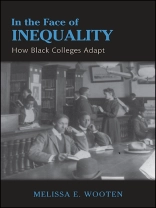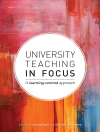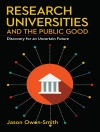First comparative historical analysis of the organizational growth of black colleges.
A quarter of black Americans earn college degrees from black colleges, yet questions about the necessity of black colleges abound. In the Face of Inequality dissects the ways in which race and racism combined to shape the experiences of America’s black colleges in the mid-twentieth century. In a novel approach to this topic, Melissa E. Wooten combines historical data with a sociological approach. Drawing on extensive quantitative and qualitative historical data, Wooten argues that for much of America’s history, educational and social policy was explicitly designed to limit black colleges’ organizational development. As an alternative to questioning the modern day relevance of these schools, Wooten asks readers to consider how race and racism precludes black colleges from acquiring the resources and respect worthy of them.
Table des matières
List of Figures and Tables
Preface
Acknowledgments
Introduction
1. The Black Higher Education Field
2. Collective Action and Status Inequality
3. Advocacy and Racial Inequality
4. Adapting to a World without State-Sanctioned Racial Inequality
5. Building Legitimacy amid Inequality
6. The Story of Organizational Adaption
Appendix 1: Population of Black Colleges and Universities
Appendix 2: UNCF Membership and Organizational Meetings
Appendix 3: Frame Analyses
Appendix 4: Earned Degree Data
Notes
References
Index
A propos de l’auteur
Melissa E. Wooten is Assistant Professor of Sociology at the University of Massachusetts Amherst.












